![Featured image for “Diversity Atlas Newsletter [March 2024]”](https://diversityatlas.io/wp-content/uploads/2024/03/142749000055003412_zc_v1_1711439597360_istock_1352936514.jpg)
Welcome to the Diversity Atlas Newsletter – March edition!
This month, we bring you the pulse of cutting-edge developments in the realms of technology, innovation, and social change. In this edition, we delve into the transformative landscape of data-driven insights and artificial intelligence showcased at Big Data & AI World, and updates on the Upfront Initiative III Summit, highlighting strides made in fostering inclusive workplaces and driving equitable opportunities. Furthermore, we’re excited to announce the release of Amazon Web Services (AWS)’s latest white paper, offering invaluable insights into emerging trends and strategies shaping the future of our digital landscape. Finally, in the wake of recent discussions surrounding diversity, equity, and inclusion (DEI) efforts, we examine the nuanced dynamics and potential backlash in our featured article, shedding light on the ongoing journey towards creating truly inclusive environments. Join us as we navigate through these pivotal topics and delve into the forefront of innovation and social progress.
‘Diversity in the Age of AI — Diversified We Grow’
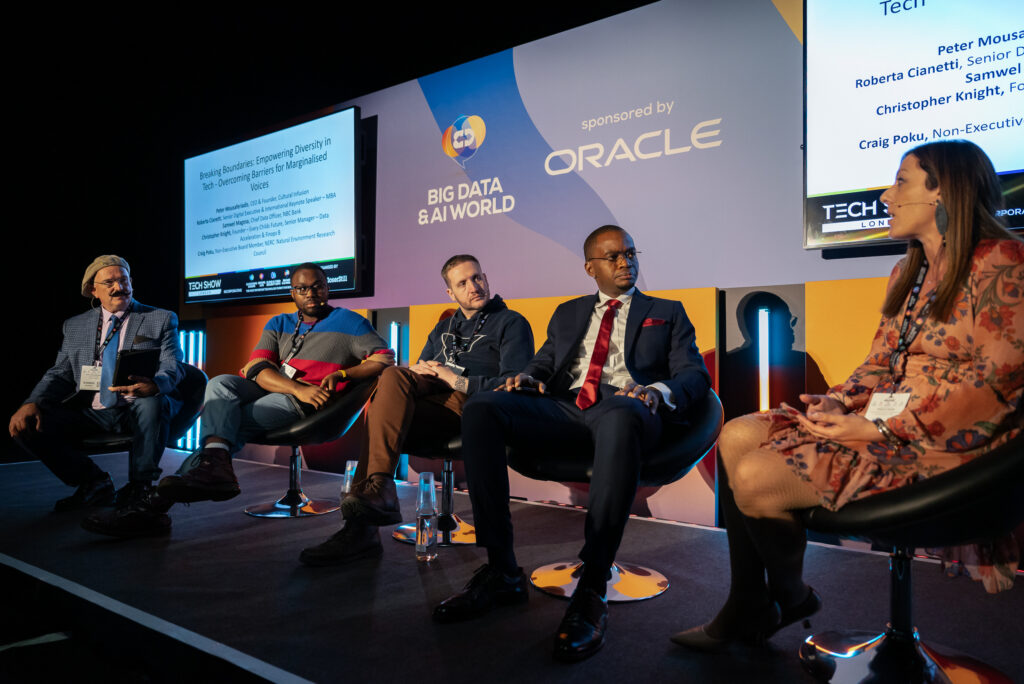

On 6 and 7 March, Peter Mousaferiadis gave several talks, chaired a panel and facilitated a series of ‘fireside conversations’ about big data and its role in AI at Big Data & AI World which is part of Tech Show London. The conference was attended by 15,000 people.
Peter highlighted the importance of treading carefully as we race to implement AI and the need to include every voice in large language models. As he says, ‘Algorithms are still making the assumption we’re all starting from the same place. This couldn’t be further from the truth. Without inclusive datasets that capture the complexity of identity of being and becoming in the AI age, we risk perpetuating division, exclusion, and poverty and conflict which is costing the world more than 17 trillion dollars annually (according to the Global Peace Index).’
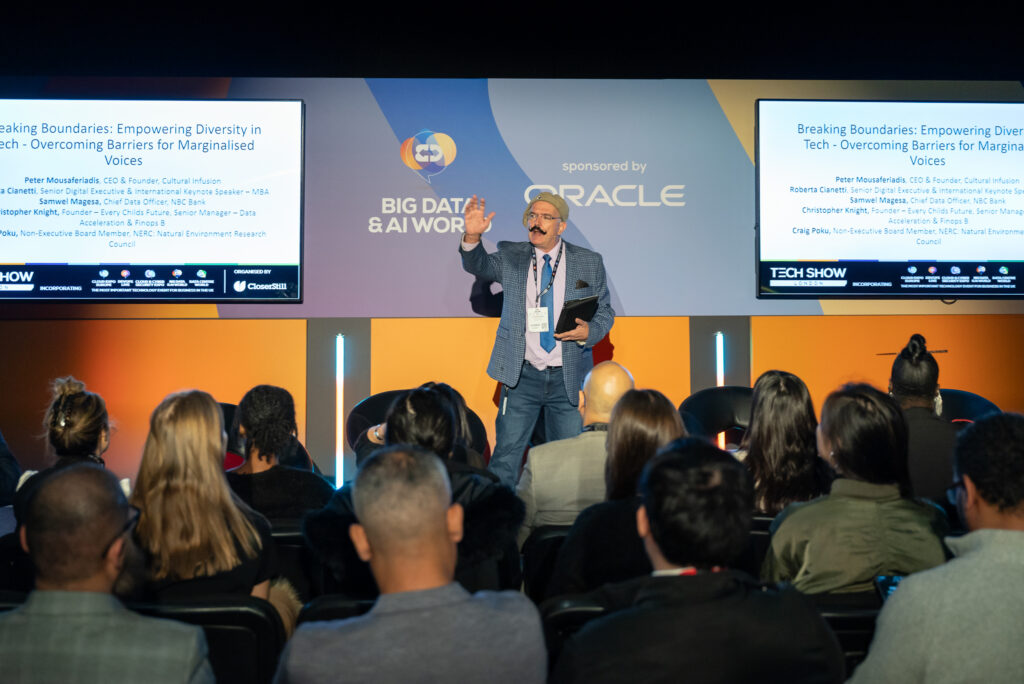
A standing-room-only crowd came to hear Peter delve into the need to centre culture and cultural diversity in technological development and discuss some of the opportunities and pitfalls of AI. His post ‘Diversity in the Age of AI: Diversified We Grow’ was based on the keynote, and can be read here.
Celebrating the Essence of #IWD2024
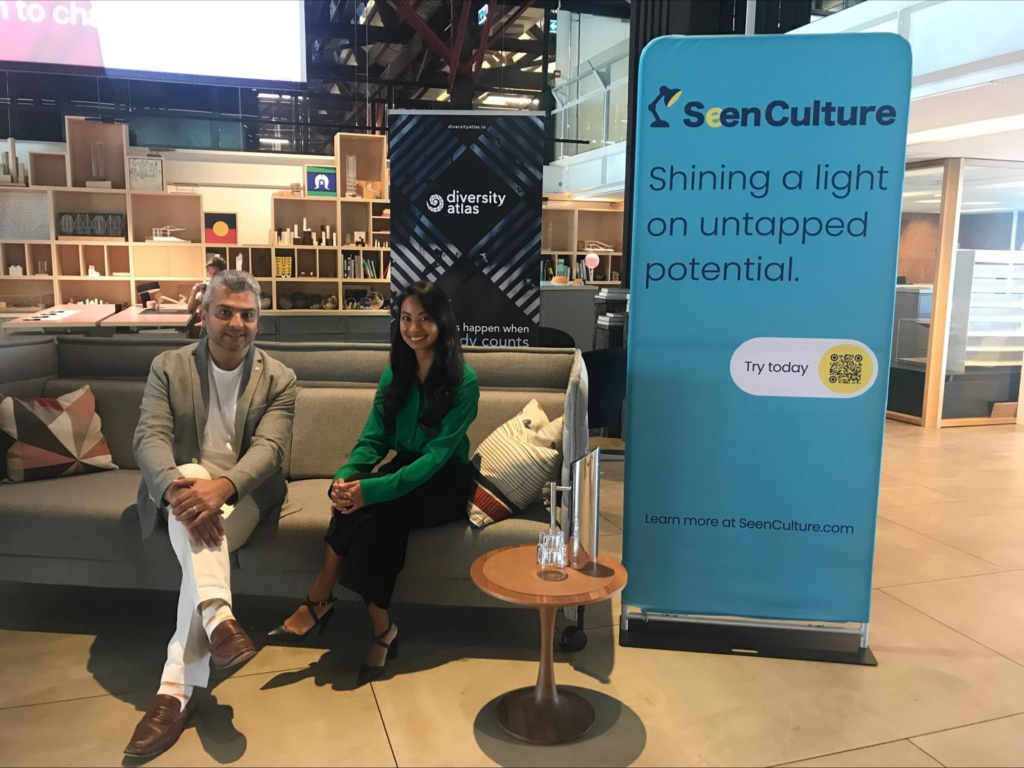
The International Women’s Day event hosted by SeenCulture, “The Ripple Effect of Investing in Women,” was held on 5 March and drew more than over 50+ attendees. Our very own CTO Rezza Moieni was MC for the night and presented live the findings of our Diversity Atlas survey which attendees filled out at the start of the event.
The event was a success and we are thankful to have shared some interesting insights, celebrating the cultural richness present in the room.
Diversity Data Driven White Paper by AWS
We’re excited to share that the white paper commissioned by AWS, “Diversity Atlas: Providing Data-Driven Direction for Organizations’ Inclusion, Diversity, and Equity Journey,” is now published.
This white paper is the second of a series of publications by AWS, the first being the Inclusion Playbook, which identifies Diversity Atlas as the first step to inclusion.
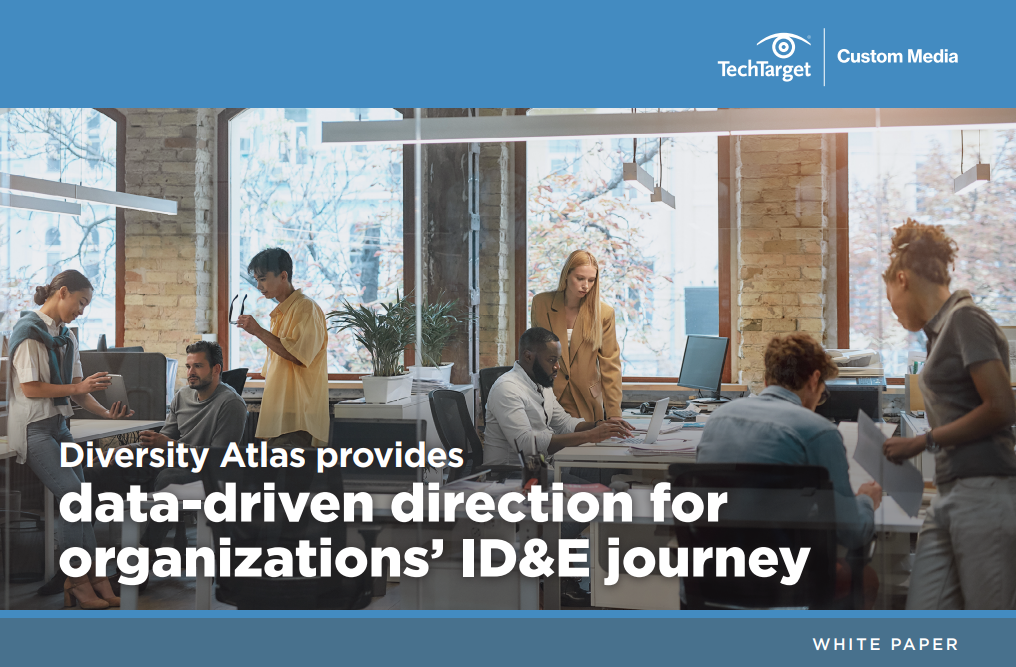
Access your free copy here.
DEI Must DIE! Really?
Recently, Elon Musk tweeted (or X’d) that DEI must DIE, with ‘die’ in angry capital letters. Clearly, he’s not a fan of the industry we’re in. Just last week, the US state of Alabama brought into law a “bill restricting public universities and government agencies from sponsoring diversity, equity and inclusion programs.” I’d like to suggest this is just some strange goings-on in the US, but it seems like globally there’s a loud push against DEI, and it’s very loud at times.
But who’s doing the shouting? And how many people do they represent? Are they heroic liberators, fighting for our freedoms from whatever it is about inclusion they hate, shouting through their megaphones on behalf of a disenfranchised silent majority?
We have actual global data on people in the workforce, based on users of Diversity Atlas. Sure, that’s not everyone, but people in the workforce are the ones probably most likely to encounter DEI initiatives, and when asked to respond to a statement along the lines of “I support DEI programs” the global averages are:
Strongly Agree 54.1%,
Agree 37.5%,
Impartial 7.2%,
Disagree 0.8%,
Strongly Disagree 0.4%
Oh, look at that, even if you add disagree and strongly disagree you only get to 1.2%. Let’s round that off to about one-in-a-hundred specifically don’t support DEI initiatives in the workplace. For those of us in the industry it makes sense; why would anyone want to oppose any sort of initiative that welcomes and fosters difference, or encourages anything the company can do to make everyone feel welcome, and maybe also works towards being a true representation of the wider community?
I think it’s a noisy minority who oppose it for reasons that are probably political, contrarian for its own sake, maybe racist, maybe homophobic. We don’t ask people why they specifically oppose it so we have no accurate data but we occasionally read in the comments rants against ‘radical-agendas’ or some reference to white heterosexual men being the real victims of discrimination, but again, look at the figure… (1.2%). It’s a real-world figure that dispels the myth that there’s some massive groundswell against DEI. There’s not (in the workplace anyway).
Diversity Atlas Measures Cultural Diversity at ‘The Upfront Initiative’
It is always a privilege to be among thousands of professionals, debating how to create a culturally harmonious world. This time around, our EU-based Cultural Ambassador, Mario Chatzidamianos, represented Diversity Atlas on the stage of the third annual The Upfront Initiative conference for equality, inclusion, diversity and visibility in the workplace, held on 14 March 2024 at the Athens Conservatory, Greece.
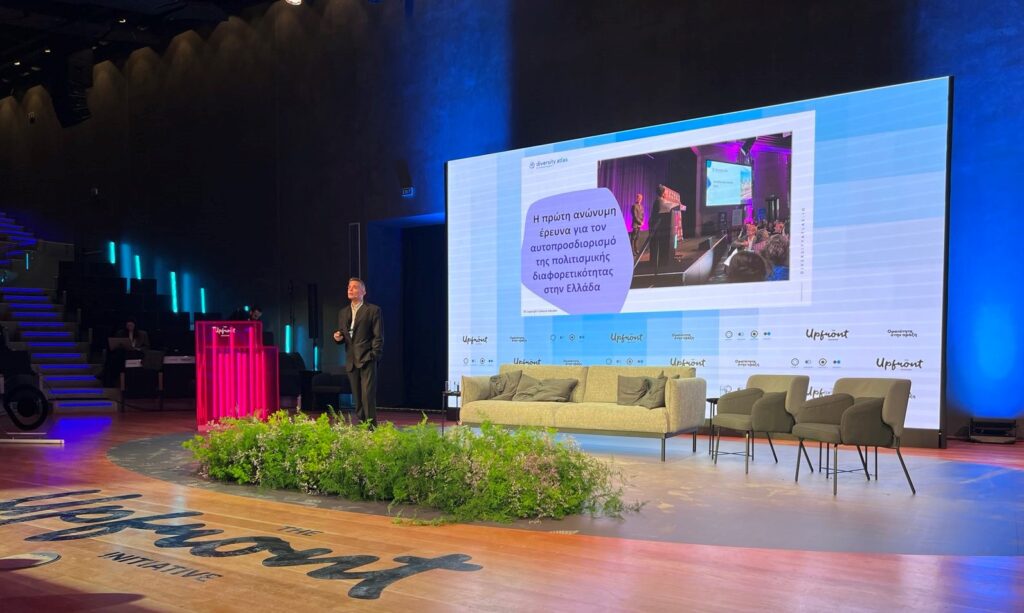
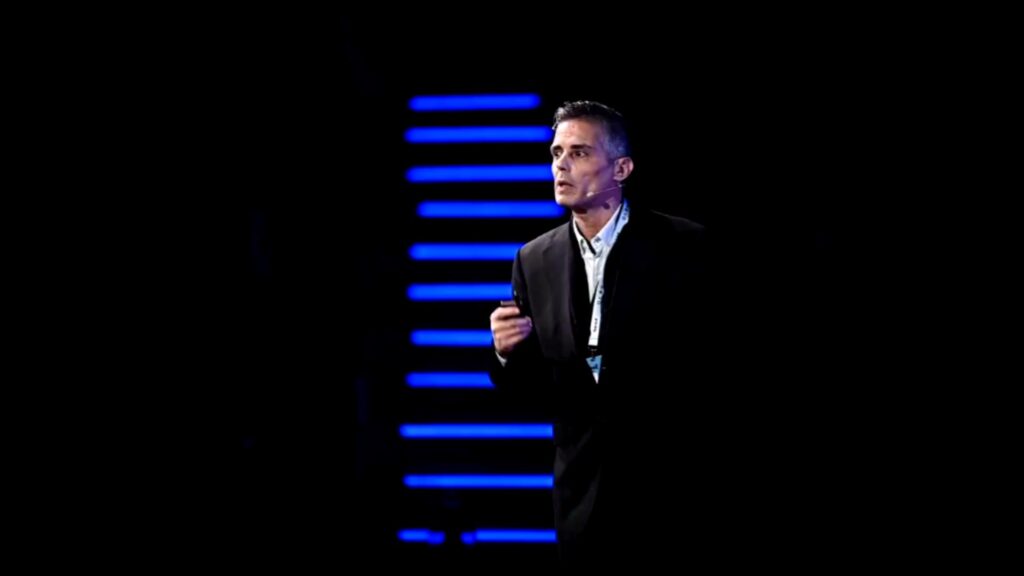
Seventy guest speakers and more than a thousand delegates took part in a ten-hour marathon to discuss: inclusion, visibility, parenthood, representation in the media, cancel culture, neurodiversity, mental health, addictions, ageism, image-shaming, equal opportunities, coordination, commitment to tackle racism, and discrimination in business and society.
The conference organisers, LiFO and Tsomokos Communications, chose Diversity Atlas to map the cultural diversity among participants. Mario presented the findings of the first, fully anonymous, cultural diversity online survey in Greece.Mario highlighted that among surveyed participants, ‘my interests/hobbies’ was the most important indicator, at 29.8%, underscoring that organisations may benefit from encouraging employees to use their passions in the business environment and continue developing their interests.
The second most popular indicator was ‘education’, at 27.7%, a rare finding outside academia, but clearly relevant to this diverse audience of top politicians, journalists, artists, pop culture representatives, alongside civil society organisations and companies.
Greeks in general consider education to be a key self-identification factor, which reflects the deep-rooted cultural belief that tertiary studies offer better employment and economic opportunities.
It is also important to notice that, among the surveyed participants, 87.5% are multilingual and Ancient Greek is still studied and spoken by a significant number of people!
Watch Mario’s presentation video on our YouTube channel, subscribe to our newsletter and social media and stay up to date with our latest news. Run a free Healthcheck for your organisation and book a demo with our team to find what Diversity Atlas can do for you!
March Calendar Highlight – Easter Sunday
Easter Sunday is a joyous celebration in the Christian faith, marking the resurrection of Jesus Christ on the third day after his crucifixion. It is a day of hope, renewal, and rejoicing, symbolising the triumph of life over death. Eggs, a symbol of new life and rebirth, are often used in Easter celebrations as a reminder of the resurrection and the promise of eternal life. Christians around the world gather for worship services, prayers, and festive gatherings to honor the resurrection of Jesus and to rejoice in the hope and salvation it brings.

Share this Post